Identification of unique neoantigen qualities in long-term survivors of pancreatic cancer
- PMID: 29132146
- PMCID: PMC6145146
- DOI: 10.1038/nature24462
Identification of unique neoantigen qualities in long-term survivors of pancreatic cancer
Abstract
Pancreatic ductal adenocarcinoma is a lethal cancer with fewer than 7% of patients surviving past 5 years. T-cell immunity has been linked to the exceptional outcome of the few long-term survivors, yet the relevant antigens remain unknown. Here we use genetic, immunohistochemical and transcriptional immunoprofiling, computational biophysics, and functional assays to identify T-cell antigens in long-term survivors of pancreatic cancer. Using whole-exome sequencing and in silico neoantigen prediction, we found that tumours with both the highest neoantigen number and the most abundant CD8+ T-cell infiltrates, but neither alone, stratified patients with the longest survival. Investigating the specific neoantigen qualities promoting T-cell activation in long-term survivors, we discovered that these individuals were enriched in neoantigen qualities defined by a fitness model, and neoantigens in the tumour antigen MUC16 (also known as CA125). A neoantigen quality fitness model conferring greater immunogenicity to neoantigens with differential presentation and homology to infectious disease-derived peptides identified long-term survivors in two independent datasets, whereas a neoantigen quantity model ascribing greater immunogenicity to increasing neoantigen number alone did not. We detected intratumoural and lasting circulating T-cell reactivity to both high-quality and MUC16 neoantigens in long-term survivors of pancreatic cancer, including clones with specificity to both high-quality neoantigens and predicted cross-reactive microbial epitopes, consistent with neoantigen molecular mimicry. Notably, we observed selective loss of high-quality and MUC16 neoantigenic clones on metastatic progression, suggesting neoantigen immunoediting. Our results identify neoantigens with unique qualities as T-cell targets in pancreatic ductal adenocarcinoma. More broadly, we identify neoantigen quality as a biomarker for immunogenic tumours that may guide the application of immunotherapies.
Figures
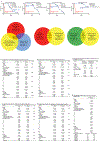
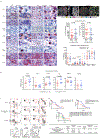
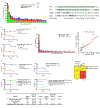
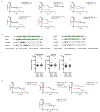
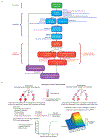
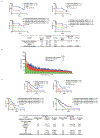
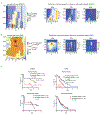
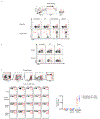
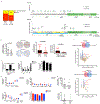
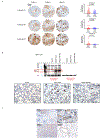




Comment in
-
How T cells spot tumour cells.Nature. 2017 Nov 23;551(7681):444-446. doi: 10.1038/d41586-017-07267-9. Nature. 2017. PMID: 29168843 No abstract available.
-
Immunotherapy: Relying on quality over quantity.Nat Rev Clin Oncol. 2018 Jan;15(1):6-7. doi: 10.1038/nrclinonc.2017.189. Epub 2017 Nov 28. Nat Rev Clin Oncol. 2018. PMID: 29182163 No abstract available.
-
Pancreatic cancer: Next-generation algorithms for neoantigen selection.Nat Rev Gastroenterol Hepatol. 2018 Mar;15(3):135-136. doi: 10.1038/nrgastro.2017.184. Epub 2018 Jan 10. Nat Rev Gastroenterol Hepatol. 2018. PMID: 29317775 Free PMC article.
References
-
- Bindea G et al. Spatiotemporal Dynamics of Intratumoral Immune Cells Reveal the Immune Landscape in Human Cancer. Immunity 39, 782–795 (2013). - PubMed
Publication types
MeSH terms
Substances
Grants and funding
LinkOut - more resources
Full Text Sources
Other Literature Sources
Medical
Molecular Biology Databases
Research Materials
Miscellaneous

